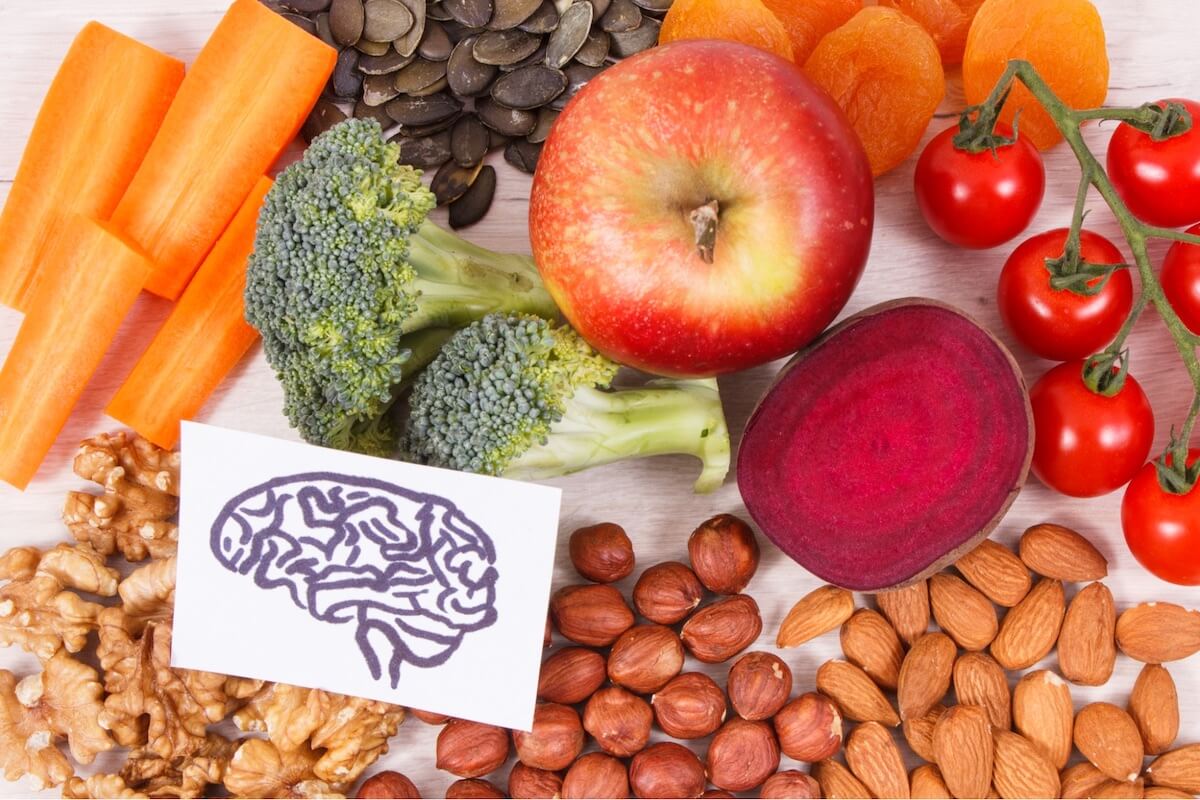We know diet is a driving force of our health, including the health of our brain. More and more research is being published that promotes a whole foods plant-based (WFPB) diet to promote brain health. This includes a wide range of applications, from restoring function after a traumatic brain injury to preventing cognitive decline.
Looking at the Research
There are plenty of anecdotal success stories about using diet to promote brain health. While these can be inspiring, we need to look at well-designed research first and foremost. There is robust research on using diet and exercise for diabetes, heart disease, and other conditions, but newer research is emerging on its benefits for cognitive health as well.
Research suggests a multi-domain intervention encompassing diet, exercise, and cognitive training could improve or maintain cognitive function in at-risk elderly people from the general population. The study found significant intervention effects on overall cognition, executive functioning, and processing speed.

Plants Have Healing Powers
We know inflammation plays a role in many chronic conditions. It especially impacts your brain because the amount of oxidation that goes on in your cerebral spinal fluid (that bathes your nerve cells) plays a role in dementia, Alzheimer’s, memory, depression, and other cognitive factors. Therefore, we want to reduce inflammation to promote cognitive function.
Luckily, a plant-based diet can greatly reduce inflammation. Plants especially are beneficial for cognitive health due to their phytonutrients, antioxidants, vitamin E, polyunsaturated fats, and favorable omega-3 to omega-6 ratio. A WFPB diet can lower C-reactive protein and other inflammatory chemicals in as little as two weeks. Again, this can improve your brain health.
The polyphenols found in plants also play an essential role in regulating intestinal flora and enhancing host immunity, thereby suppressing neurodegenerative pathologies. A thriving microflora, fueled by plants, can improve depression, anxiety, and cognitive function.
We want to strive for predominantly whole foods. Research shows that a higher percentage of daily energy consumption of ultra-processed foods was associated with cognitive decline among adults. Therefore, processed foods should be limited due to their potential harm to cognitive function. Minimizing processed foods and maximizing whole plants is the best approach.

Traumatic Brain Injury Healing
One of our experts, Dr. Eric Sternlicht, recently gave a presentation to St. Jude’s Brain Injury Network on the many benefits of a WFPB diet for traumatic brain injury recovery. He suffered a traumatic brain injury, but fortunately is making progress at an unprecedented pace– which he attributes to his WFPB diet.
Although one success story is an inspiring anecdote, we always need to see what the evidence says before assuming it’s more than mere coincidence. As we’ve seen, the literature supports a plant-based diet for traumatic brain injury recovery. Learn more from Dr. Sternlicht’s presentation below.
Lifestyle Implementation
It may feel overwhelming or even impossible to make the switch to a WFPB diet. However, it can be simple and does not mean spending all your free time in the kitchen. Many healthy staples require little to no cooking. Some of our favorites include frozen vegetables, canned beans, microwavable rice or grain pouches, and pre-washed greens like spring mix. These make it quick and easy to throw a meal together in a few minutes, while providing your body with so much nourishment.
Ready to implement some changes? Check out our article with 6 Inflammation-Fighting Foods, including easy meal ideas to incorporate them into your routine.








